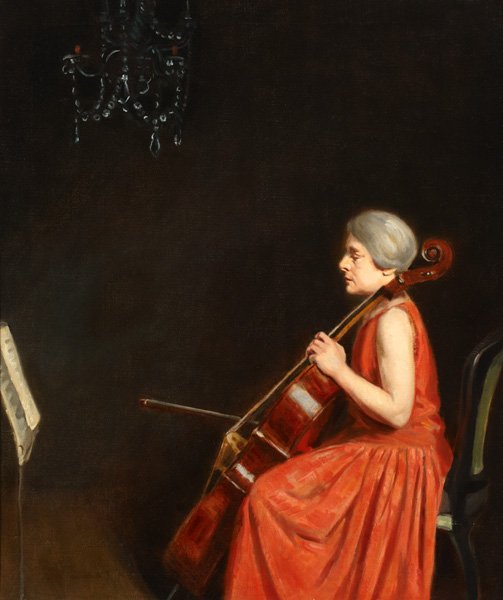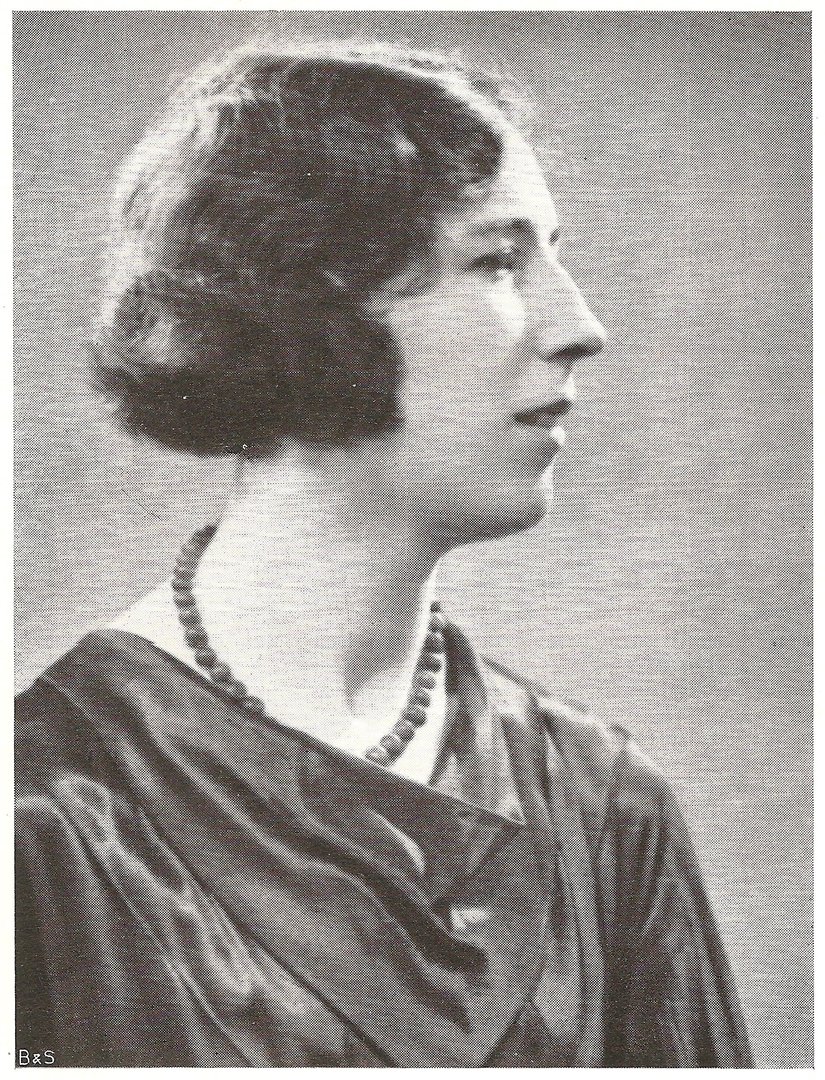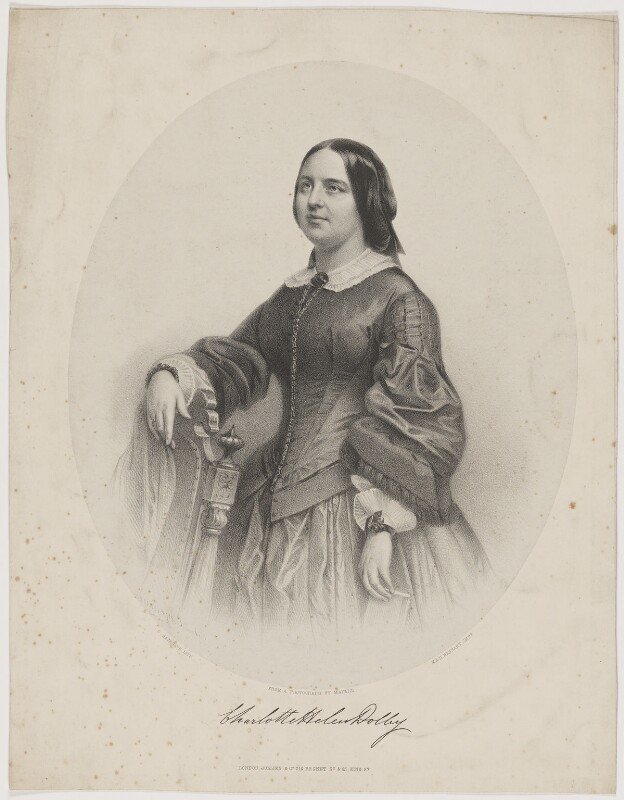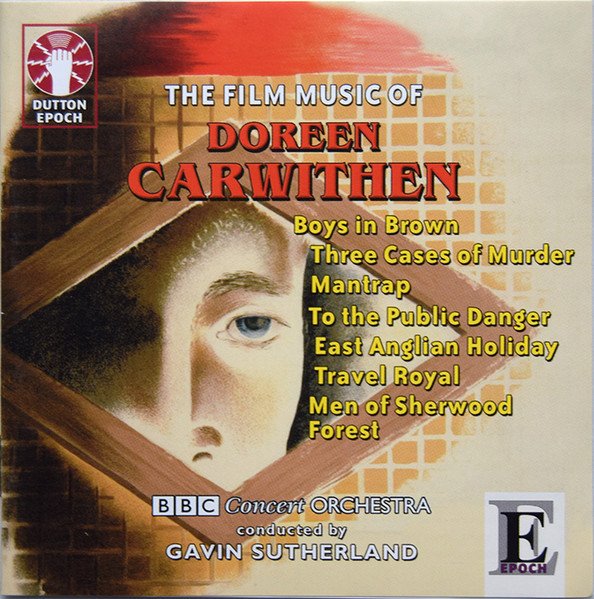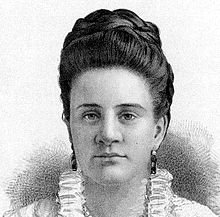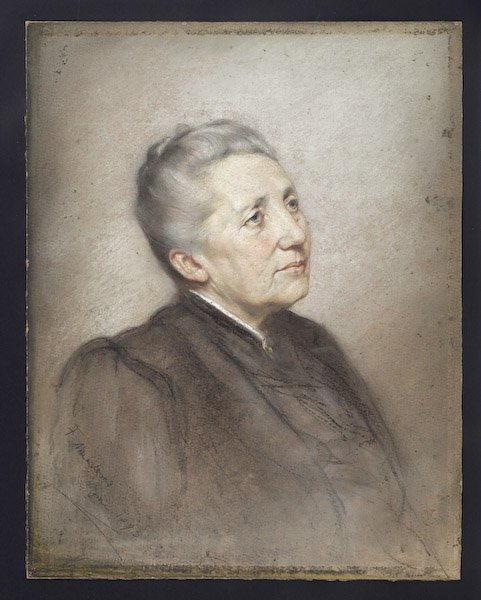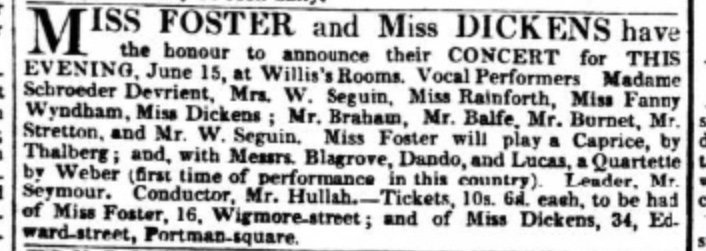My Little Dreams: Georgia Douglas Johnson
“I’m folding up my little dreams
Within my heart to-night,
And praying I may soon forget
The torture of their sight.
For Time’s deft fingers scroll my brow
With fell relentless art—
I’m folding up my little dreams
To-night, within my heart!”
The Storm; Anaïs Nin
“In the country, the trees bend
Under the weight of the rain
That is falling in huge drops, under the name cheater,
For it brings a second night.
The sky clears, illuminating the earth for a second,
And then frightens the sleeping birds
With a great clap of thunder, and like bitter tears
The drops of rain become noisily mixed with those already fallen.
Nature, frightened, hides under the rustling leaves,
The flowers close under this brutal dew
And the soaked earth boasts of bearing this squall alone.
The birds, flapping their wings, lift themselves up
And murmur softly, “The Storm.”
On the sea, the holy anger becomes rage,
The waves beat furiously,
Sharing the sky’s fury.
The gloomy wind blows and beats the sails with a clamor,
While the ocean, in a supreme effort,
Hesitating and becoming one great wave,
A new voice conjuring,
In its sad and plaintive timbre,
A new force among the other cries,
And while the terrified seabirds seek a hiding place
In the depths of the few rocks along the coast,
The seamen in their crumbling boats
Shake their heads, saying, “Here is The Storm.”
And God contemplates His work,
A smile appearing in his white beard,
Seeing the fear,
In his black columns, becoming white,
And while the weather continues shuddering,
God says to Himself softly,
“Poor Man! He cannot see
Anything in my greatness.
Blind, undisciplined! Poor Man!
It’s a storm!”
”
Mother And Poet: Elizabeth Barrett Browning
“I.
Dead ! One of them shot by the sea in the east,
And one of them shot in the west by the sea.
Dead ! both my boys ! When you sit at the feast
And are wanting a great song for Italy free,
Let none look at me !
II.
Yet I was a poetess only last year,
And good at my art, for a woman, men said ;
But this woman, this, who is agonized here,
— The east sea and west sea rhyme on in her head
For ever instead.
III.
What art can a woman be good at ? Oh, vain !
What art is she good at, but hurting her breast
With the milk-teeth of babes, and a smile at the pain ?
Ah boys, how you hurt ! you were strong as you pressed,
And I proud, by that test.
IV.
What art’s for a woman ? To hold on her knees
Both darlings ! to feel all their arms round her throat,
Cling, strangle a little ! to sew by degrees
And ‘broider the long-clothes and neat little coat ;
To dream and to doat.
V.
To teach them ... It stings there ! I made them indeed
Speak plain the word country. I taught them, no doubt,
That a country’s a thing men should die for at need.
I prated of liberty, rights, and about
The tyrant cast out.
VI.
And when their eyes flashed ... O my beautiful eyes ! ...
I exulted ; nay, let them go forth at the wheels
Of the guns, and denied not. But then the surprise
When one sits quite alone ! Then one weeps, then one kneels !
God, how the house feels !
VII.
At first, happy news came, in gay letters moiled
With my kisses, — of camp-life and glory, and how
They both loved me ; and, soon coming home to be spoiled
In return would fan off every fly from my brow
With their green laurel-bough.
VIII.
Then was triumph at Turin : Ancona was free !’
And some one came out of the cheers in the street,
With a face pale as stone, to say something to me.
My Guido was dead ! I fell down at his feet,
While they cheered in the street.
IX.
I bore it ; friends soothed me ; my grief looked sublime
As the ransom of Italy. One boy remained
To be leant on and walked with, recalling the time
When the first grew immortal, while both of us strained
To the height he had gained.
X.
And letters still came, shorter, sadder, more strong,
Writ now but in one hand, I was not to faint, —
One loved me for two — would be with me ere long :
And Viva l’ Italia ! — he died for, our saint,
Who forbids our complaint.”
XI.
My Nanni would add, he was safe, and aware
Of a presence that turned off the balls, — was imprest
It was Guido himself, who knew what I could bear,
And how ‘twas impossible, quite dispossessed,
To live on for the rest.”
XII.
On which, without pause, up the telegraph line
Swept smoothly the next news from Gaeta : — Shot.
Tell his mother. Ah, ah, his, ‘ their ‘ mother, — not mine, ‘
No voice says “My mother” again to me. What !
You think Guido forgot ?
XIII.
Are souls straight so happy that, dizzy with Heaven,
They drop earth’s affections, conceive not of woe ?
I think not. Themselves were too lately forgiven
Through THAT Love and Sorrow which reconciled so
The Above and Below.
XIV.
O Christ of the five wounds, who look’dst through the dark
To the face of Thy mother ! consider, I pray,
How we common mothers stand desolate, mark,
Whose sons, not being Christs, die with eyes turned away,
And no last word to say !
XV.
Both boys dead ? but that’s out of nature. We all
Have been patriots, yet each house must always keep one.
’Twere imbecile, hewing out roads to a wall ;
And, when Italy ‘s made, for what end is it done
If we have not a son ?
XVI.
Ah, ah, ah ! when Gaeta’s taken, what then ?
When the fair wicked queen sits no more at her sport
Of the fire-balls of death crashing souls out of men ?
When the guns of Cavalli with final retort
Have cut the game short ?
XVII.
When Venice and Rome keep their new jubilee,
When your flag takes all heaven for its white, green, and red,
When you have your country from mountain to sea,
When King Victor has Italy’s crown on his head,
(And I have my Dead) —
XVIII.
What then ? Do not mock me. Ah, ring your bells low,
And burn your lights faintly ! My country is there,
Above the star pricked by the last peak of snow :
My Italy ‘s THERE, with my brave civic Pair,
To disfranchise despair !
XIX.
Forgive me. Some women bear children in strength,
And bite back the cry of their pain in self-scorn ;
But the birth-pangs of nations will wring us at length
Into wail such as this — and we sit on forlorn
When the man-child is born.
XX.
Dead ! One of them shot by the sea in the east,
And one of them shot in the west by the sea.
Both ! both my boys ! If in keeping the feast
You want a great song for your Italy free,
Let none look at me ! ”
The Look: Sara Teasdale
“Strephon kissed me in the spring,
Robin in the fall,
But Colin only looked at me
And never kissed at all.
Strephon’s kiss was lost in jest,
Robin’s lost in play,
But the kiss in Colin’s eyes
Haunts me night and day.”
Waterfall: Lauris Edmond
“I do not ask for youth, nor for delay
in the rising of time’s irreversible river
that takes the jewelled arc of the waterfall
in which I glimpse, minute by glinting minute,
all that I have and all I am always losing
as sunlight lights each drop fast, fast falling.
I do not dream that you, young again,
might come to me darkly in love’s green darkness
where the dust of the bracken spices the air
moss, crushed, gives out an astringent sweetness
and water holds our reflections
motionless, as if for ever.
It is enough now to come into a room
and find the kindness we have for each other
— calling it love — in eyes that are shrewd
but trustful still, face chastened by years
of careful judgement; to sit in the afternoons
in mild conversation, without nostalgia.
But when you leave me, with your jauntiness
sinewed by resolution more than strength
— suddenly then I love you with a quick
intensity, remembering that water,
however luminous and grand, falls fast
and only once to the dark pool below.”
Crickets At Dawn: Leonora Speyer
“All night the crickets chirp,
Like little stars of twinkling sound
In the dark silence.
They sparkle through the summer stillness
With a crisp rhythm:
They lift the shadows on their tiny voices.
But at the shining note of birds that wake,
Flashing from tree to tree till all the wood is lit —
O golden coloratura of dawn!—
The cricket-stars fade slowly,
One by one.”
The Lonely Woman: Mabel Forrest
“WHERE the ironbarks are hanging leaves disconsolate and pale,
Where the wild vines o’er the ranges their spilt cream of blossom trail,
By the door of the bark humpey, by the rotting blood-wood gates,
On the river-bound selection, there a lonely woman waits,
Waits and watches gilded sunrise glow behind the mountain peak,
Hears the water hens’ shrill piping, in the rushes by the creek,
And by the sullen stormy sunsets, when the anxious cattle call,
Sees the everlasting gum-trees closing round her like a wall.
With the hunger of her bosom notes the wild birds seek their mates,
All alone and heavy-hearted, there the lonely woman waits.
Where the tall brown city buildings loom against a cloud-flecked sky,
Where along the curving tramlines brightly varnished cars rush by,
Where the call of petty traders echoes down the dusty street,
And forever comes the beating of the many passing feet,
Where the bamboo reeds are whispering by the green park’s iron gates,
By the muslin-curtained window, there a lonely woman waits.
Where the white caps lash the sea-wall, and the great waves thunder by,
Where the grey rains sweep the beaches underneath a sodden sky,
Where the swift-winged gull flies landward, and the fisher bides at home,
When the long Pacific reaches are a seething stretch of foam,
Where the empty boat drifts seawards, by the ocean’s sand-flanked gates,
In the weather-boarded cottage, there a lonely woman waits.
Where the river boats are calling, where the railway engine shrieks,
Or where only wild bird liltings echo from the reedy creeks,
Where the grey waves grieve to landward, and a wet wind beats the seas,
Or where pearl-white moths flit slowly through the dropping wattle-trees,
By the high verandah pillars, by the rotting bloodwood gates,
Crowded town or dreary seaboard, everywhere some woman waits!”
Across The Red Sky: Katharine Mansfield
“Across the red sky two birds flying,
Flying with drooping wings.
Silent and solitary their ominous flight.
All day the triumphant sun with yellow banners
Warred and warred with the earth, and when she yielded
Stabbed her heart, gathered her blood in a chalice,
Spilling it over the evening sky.
When the dark plumaged birds go flying, flying,
Quiet lies the earth wrapt in her mournful shadow,
Her sightless eyes turned to the red sky
And the restlessly seeking birds.”
Birthday Wishes to a Physician: Lizelia Jenkins Moorer
“Birthday greetings
From a friend,
All thy meetings
Peace attend.
Time extended
Be thy store,
Bliss appended
Evermore.
Did the flowers
Born of May,
From their bowers
Choose a day?
Music ringing,
On the air,
Flowers springing
Everywhere.
Chanting gayly,
Five and eight,
Make the day we
Celebrate.
Where’s the doctor?
Can you tell,
How she make her
Patients well?
Soul of beauty,
Day by day,
To her duty
Hies away.
With the sickest,
Day and night,
In the thickest
Of the fight.
Heaven’s treasure
Be thine end,
Is the measure
Of a friend.”
Fairy Song: Louisa May Alcott
“The moonlight fades from flower and rose
And the stars dim one by one;
The tale is told, the song is sung,
And the Fairy feast is done.
The night-wind rocks the sleeping flowers,
And sings to them, soft and low.
The early birds erelong will wake:
’T is time for the Elves to go.
O’er the sleeping earth we silently pass,
Unseen by mortal eye,
And send sweet dreams, as we lightly float
Through the quiet moonlit sky;—
For the stars’ soft eyes alone may see,
And the flowers alone may know,
The feasts we hold, the tales we tell;
So’t is time for the Elves to go.
From bird, and blossom, and bee,
We learn the lessons they teach;
And seek, by kindly deeds, to win
A loving friend in each.
And though unseen on earth we dwell,
Sweet voices whisper low,
And gentle hearts most joyously greet
The Elves where’er they go.
When next we meet in the Fairy dell,
May the silver moon’s soft light
Shine then on faces gay as now,
And Elfin hearts as light.
Now spread each wing, for the eastern sky
With sunlight soon shall glow.
The morning star shall light us home:
Farewell! for the Elves must go.”
The Grey Eyed King: Anna Akhmatova
“Glory to you, inescapable pain!
The gray-eyed king died yesterday.
The autumn evening was sultry and red,
My husband returned and quietly said:
”You know, they brought him back from the hunt,
They found his corpse by the old oak tree.
I pity the queen. He was so young!..
In just one night her hair turned white.”
He found his pipe on the mantelpiece
And went out to his nighttime shift.
I’ll go and wake my daughter now,
I’ll look into her little gray eyes.
While outside the rustling poplars say:
”Your king is no longer upon this earth…””
there Will Come Soft Rain: Sara Teasdale
“Autoplay Next Video
There will come soft rain and the smell of the ground,
And swallows circling with their shimmering sound;
And frogs in the pools singing at night,
And wild plum trees in tremulous white;
Robins will wear their feathery fire,
Whistling their whims on a low fence-wire;
And not one will know of the war, not one
Will care at last when it is done.
Not one would mind, neither bird nor tree,
If mankind perished utterly;
And Spring herself, when she woke at dawn
Would scarcely know that we were gone.”
The Disappointment: Aphra Behn
“1
ONE Day the Amarous Lisander,
By an impatient Passion sway’d,
Surpris’d fair Cloris, that lov’d Maid,
Who cou’d defend her self no longer ;
All things did with his Love conspire,
The gilded Planet of the Day,
In his gay Chariot, drawn by Fire,
Was now descending to the Sea,
And left no Light to guide the World,
But what from Cloris brighter Eyes was hurl’d.
2
In alone Thicket, made for Love,
Silent as yielding Maids Consent,
She with a charming Languishment
Permits his force, yet gently strove ?
Her Hands his Bosom softly meet,
But not to put him back design’d,
Rather to draw him on inclin’d,
Whilst he lay trembling at her feet;
Resistance ‘tis to late to shew,
She wants the pow’r to say — Ah!what do you do?
3
Her bright Eyes sweat, and yet Severe,
Where Love and Shame confus’dly strive,
Fresh Vigor to Lisander give :
And whispring softly in his Ear,
She Cry’d — Cease — cease — your vain desire,
Or I’ll call out — What wou’d you do ?
My dearer Honour, ev’n to you,
I cannot — must not give — retire,
Or take that Life whose chiefest part
I gave you with the Conquest of my Heart.
4
But he as much unus’d to fear,
As he was capable of Love,
The blessed Minutes to improve,
Kisses her Lips, her Neck, her Hair !
Each touch her new Desires alarms !
His burning trembling Hand he prest
Upon her melting Snowy Breast,
While she lay panting in his Arms !
All her unguarded Beauties lie
The Spoils and Trophies of the Enemy.
5
And now, without Respect or Fear,
He seeks the Objects of his Vows ;
His Love no Modesty allows :
By swift degrees advancing where
His daring Hand that Alter seiz’d,
Where Gods of Love do Sacrifice ;
That awful Throne, that Paradise,
Where Rage is tam’d, and Anger pleas’d ;
That Living Fountain, from whose Trills
The melted Soul in liquid Drops distils.
6
Her balmy Lips encountring his,
Their Bodies as their Souls are joyn’d,
Where both in Transports were confin’d,
Extend themselves upon the Moss.
Cloris half dead and breathless lay,
Her Eyes appear’d like humid Light,
Such as divides the Day and Night;
Or falling Stars, whose Fires decay ;
And now no signs of Life she shows,
But what in short-breath-sighs returns and goes.
7
He saw how at her length she lay,
He saw her rising Bosom bare,
Her loose thin Robes, through which appear
A Shape design’d for Love and Play;
Abandon’d by her Pride and Shame,
She do’s her softest Sweets dispence,
Offring her Virgin-Innocence
A Victim to Loves Sacred Flame ;
Whilst th’ or’e ravish’d Shepherd lies,
Unable to perform the Sacrifice.
8
Ready to taste a Thousand Joys,
Thee too transported hapless Swain,
Found the vast Pleasure turn’d to Pain :
Pleasure, which too much Love destroys !
The willing Garments by he laid,
And Heav’n all open to his view ;
Mad to possess, himself he threw
On the defenceless lovely Maid.
But oh ! what envious Gods conspire
To snatch his Pow’r, yet leave him the Desire !
9
Natures support, without whose Aid
She can no humane Being give,
It self now wants the Art to live,
Faintness it slacken’d Nerves invade :
In vain th’ enraged Youth assaid
To call his fleeting Vigour back,
No Motion ‘twill from Motion take,
Excess of Love his Love betray’d ;
In vain he Toils, in vain Commands,
Th’ Insensible fell weeping in his Hands.
10
In this so Am’rous cruel strife,
Where Love and Fate were too severe,
The poor Lisander in Despair,
Renounc’d his Reason with his Life.
Now all the Brisk and Active Fire
That should the Nobler Part inflame,
Unactive Frigid, Dull became,
And left no Spark for new Desire ;
Not all her Naked Charms cou’d move,
Or calm that Rage that had debauch’d his Love.
11
Cloris returning from the Trance
Which Love and soft Desire had bred,
Her tim’rous Hand she gently laid,
Or guided by Design or Chance,
Upon that Fabulous Priapus,
That Potent God (as Poets feign.)
But never did young Shepherdess
(Gath’ring of Fern upon the Plain)
More nimbly draw her Fingers back,
Finding beneath the Verdant Leaves a Snake.
12
Then Cloris her fair Hand withdrew,
Finding that God of her Desires
Disarm’d of all his pow’rful Fires,
And cold as Flow’rs bath’d in the Morning-dew.
Who can the Nymphs Confusion guess ?
The Blood forsook the kinder place,
And strew’d with Blushes all her Face,
Which both Disdain and Shame express ;
And from Lisanders Arms she fled,
Leaving him fainting on the gloomy Bed.
13
Like Lightning through the Grove she hies,
Or Daphne from the Delphick God ;
No Print upon the Grassie Road
She leaves, t’ instruct pursuing Eyes.
The Wind that wanton’d in her Hair,
And with her ruffled Garments plaid,
Discover’d in the flying Maid
All that the Gods e’re made of Fair.
So Venus, when her Love was Slain,
With fear and haste flew o’re the fatal Plain.
14
The Nymphs resentments, none but I
Can well imagin, and Condole ;
But none can guess Lisander’s Soul,
But those who sway’d his Destiny :
His silent Griefs, swell up to Storms,
And not one God, his Fury spares,
He Curst his Birth, his Fate, his Stars,
But more the Shepherdesses Charms ;
Whose soft bewitching influence,
Had Damn’d him to the Hell of Impotence. ”
Hymn: Sarah Flower Adams
“He sendeth sun, he sendeth shower,
Alike they’re needful for the flower:
And joys and tears alike are sent
To give the soul fit nourishment.
As comes to me or cloud or sun,
Father! thy will, not mine, be done!
Can loving children e’er reprove
With murmurs whom they trust and love?
Creator! I would ever be
A trusting, loving child to thee:
As comes to me or cloud or sun,
Father! thy will, not mine, be done!
Oh, ne’er will I at life repine:
Enough that thou hast made it mine.
When falls the shadow cold of death
I yet will sing, with parting breath,
As comes to me or shade or sun,
Father! thy will, not mine, be done!
Whatever it is, the way you tell your story online can make all the difference.”
Invisible Work: Alison Luterman
“Because no one could ever praise me enough,
because I don’t mean these poems only
but the unseen
unbelievable effort it takes to live
the life that goes on between them,
I think all the time about invisible work.
About the young mother on Welfare
I interviewed years ago,
who said, “It’s hard.
You bring him to the park,
run rings around yourself keeping him safe,
cut hot dogs into bite-sized pieces fro dinner,
and there’s no one
to say what a good job you’re doing,
how you were patient and loving
for the thousandth time even though you had a headache.”
And I, who am used to feeling sorry for myself
because I am lonely,
when all the while,
as the Chippewa poem says, I am being carried
by great winds across the sky,
thought of the invisible work that stitches up the world day and night,
the slow, unglamorous work of healing,
the way worms in the garden
tunnel ceaselessly so the earth can breathe
and bees ransack this world into being,
while owls and poets stalk shadows,
our loneliest labors under the moon.
There are mothers
for everything, and the sea
is a mother too,
whispering and whispering to us
long after we have stopped listening.
I stopped and let myself lean
a moment, against the blue
shoulder of the air. The work
of my heart
is the work of the world’s heart.
There is no other art.”
ACowherding Girl: Mirabai
“The plums tasted
sweet to the unlettered desert-tribe girl-
but what manners! To chew into each! She was ungainly,
low-caste, ill mannered and dirty,
but the god took the
fruit she’d been sucking.
Why? She’d knew how to love.
She might not distinquish
splendor from filth
but she’d tasted the nectar of passion.
Might not know any Veda,
but a chariot swept her away-
now she frolics in heaven, esctatically bound
to her god.
The Lord of Fallen Fools, says Mira,
will save anyone
who can practice rapture like that-
I myself in a previous birth
was a cowherding girl
at Gokul.”
A Song of Romance: Letitia Elizabeth Landon
“Oh! say not love was never made
For heart so light as mine;
Must love then seek the cypress shade,
Rear but a gloomy shrine.
Oh! say not, that for me more meet
The revelry of youth;
Or that my wild heart cannot beat
With deep devoted truth.
Tho’ mirth may many changes ring,
’Tis but an outward show,
Even upon the fond dove’s wing
Will varying colours glow.
Light smiles upon my lip may gleam
And sparkle o’er my brow,
’Tis but the glisten of the stream
That hides the gold below.
’Tis love that gilds the mirthful hour,
That lights the smile for me,
Those smiles would instant lose their power,
Did they not glance on thee!”
One World: Briar Wood
“Opening the accordion of your book you look
out to sea—the sand shifts, slides, silts, stretches behind
among dun dune flanks, drifts, banks, fleshing the beach,
creates a seascrape, placates the waves that break,
wet mouthed, in a language that cannot be deciphered,
held together by inky blots of bluebottle jellyfish,
demarcating the shore line, making a bed for mangroves,
sand tickles through your hands, the egg timer’s trickle of
instant infiltrating towels, toes, feet, sheets, carpet, mat,
crotches, watches, bikinis and togs. Sand cannot build
a house for the Lord, thank heavens, or castles, but it can
stand for oases, deserts, burnt-out campsites, caravans.
Sand grows shellfish and succulents such as aloe that heal.
Kuaka camouflage with it. The colour of summer haze
sand sounds of caesuras, fills the distance between cloudy
dreams and the open seas, clogs the vacuum cleaner.
A few grains may wreck the computer too, sabotage a camera,
grind the house paint into traces, make stucco and glass,
grow pīngao. Sand is for drawing a fine line on.
A brimming horizon where Hine-ahu-one makes her plans,
absorbs the seasurge, Tāne’s inseminations, births earth.”
January: Betty Adcock
“Dusk and snow this hour
in argument have settled
nothing. Light persists,
and darkness. If a star
shines now, that shine is
swallowed and given back
doubled, grounded bright.
The timid angels flailed
by passing children lift
in a whitening wind
toward night. What plays
beyond the window plays
as water might, all parts
making cold digress.
Beneath iced bush and eave,
the small banked fires of birds
at rest lend absences
to seeming absence. Truth
is, nothing at all is missing.
Wind hisses and one shadow
sways where a window’s lampglow
has added something. The rest
is dark and light together tolled
against the boundary-riven
houses. Against our lives,
the stunning wholeness of the world.”
Birth: Annie Stillman
“JUST when each bud was big with bloom,
And as prophetic of perfume,
When spring, with her bright horoscope,
Was sweet as an unuttered hope;
Just when the last star flickered out,
And twilight, like a soul in doubt,
Hovered between the dark and dawn,
And day lay waiting to be born;
Just when the gray and dewy air
Grew sacred as an unvoiced prayer,
And somewhere through the dusk she heard
The stirring of a nested bird,—
Four angels glorified the place:
Wan Pain unveiled her awful face;
Joy, soaring, sang; Love, brooding, smiled;
Peace laid upon her breast a child.”
